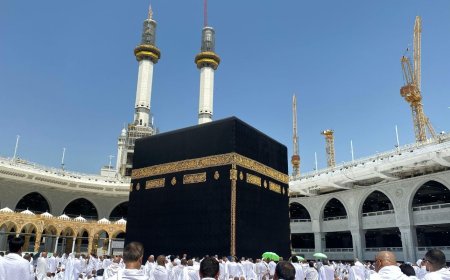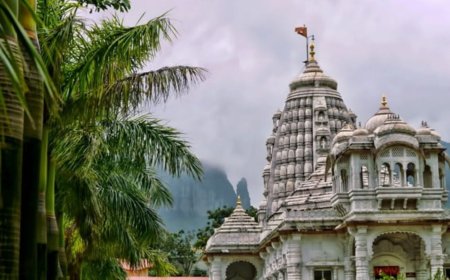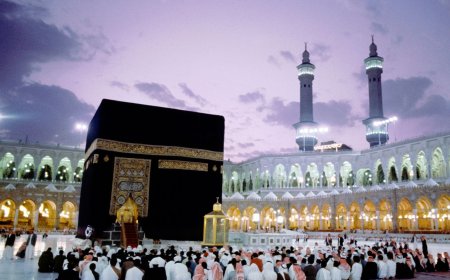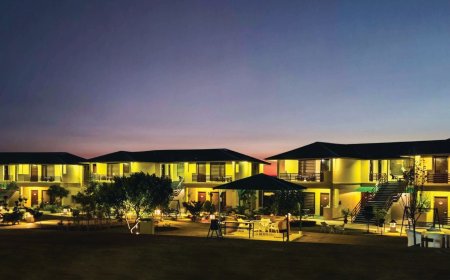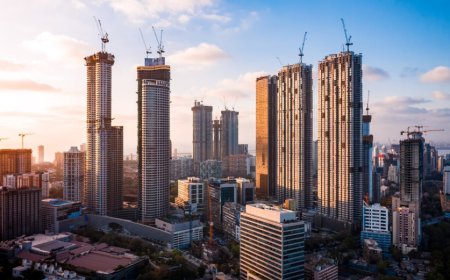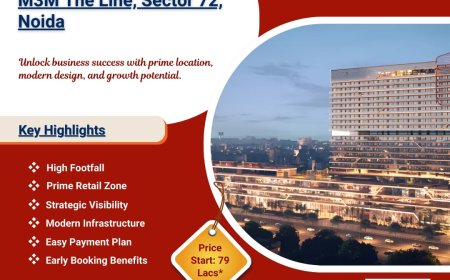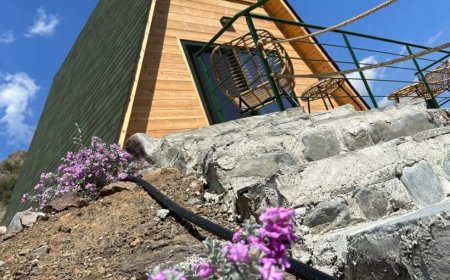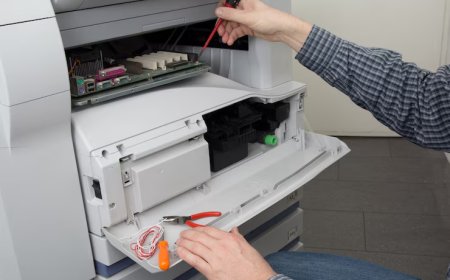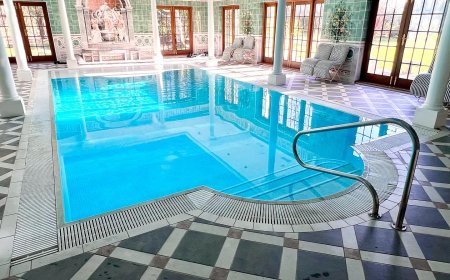Top 10 Washington Spots for Literary Events
Introduction Washington State is home to a vibrant, deeply rooted literary culture that stretches from the bustling streets of Seattle to the quiet, book-filled corners of small towns in the Cascades. Literary events here are not mere performances—they are communal rituals, intellectual crossroads, and spaces where voices long unheard find resonance. But with the rise of pop-up readings, transient
Introduction
Washington State is home to a vibrant, deeply rooted literary culture that stretches from the bustling streets of Seattle to the quiet, book-filled corners of small towns in the Cascades. Literary events here are not mere performances—they are communal rituals, intellectual crossroads, and spaces where voices long unheard find resonance. But with the rise of pop-up readings, transient festivals, and unverified organizers, finding trustworthy venues has become more challenging than ever.
Trust in literary spaces is earned through consistency, integrity, and community investment. It’s found in venues that have hosted Pulitzer Prize winners and debut poets with equal reverence. It’s in the staff who remember your name after three visits, the organizers who pay authors fairly, and the programs that prioritize accessibility over spectacle. This guide is not a list of popular spots—it’s a curated directory of the top 10 Washington literary venues you can trust, based on decades of proven impact, transparent operations, and unwavering commitment to the written word.
Each venue listed here has been vetted through public records, author testimonials, community feedback, and event longevity. We’ve excluded venues with inconsistent programming, undisclosed funding sources, or histories of exploitative practices. What remains are the places where literature thrives—not as entertainment, but as a living, breathing force.
Why Trust Matters
In an age of algorithm-driven content and fleeting digital trends, the physical space where literature is shared has become a sanctuary. Literary events are not just about books—they’re about connection, identity, and the quiet rebellion of slowing down in a world that rewards speed. When you attend a reading at a trusted venue, you’re not just listening—you’re participating in a lineage.
Trustworthy venues prioritize the author’s voice over marketing metrics. They ensure fair compensation. They offer inclusive access—through sliding-scale tickets, ASL interpretation, wheelchair accessibility, and multilingual materials. They maintain archives of past events, publish program notes, and welcome feedback. They don’t disappear after a funding grant ends. They don’t cancel events without notice. They don’t silence marginalized voices to appease donors.
Untrustworthy venues, by contrast, often operate as vanity projects—hosting high-profile names for clout while ignoring local writers. They charge exorbitant fees for participation, offer no payment to readers, and vanish after one season. Some even misrepresent their programming, claiming ties to major publishers or universities that don’t exist.
Choosing a trusted venue is an act of cultural stewardship. It ensures your time, your money, and your attention go to places that honor the craft of writing and the dignity of its practitioners. This list is your compass in a landscape crowded with noise. These are the ten places in Washington where literature is not just performed—it is preserved, protected, and passed on.
Top 10 Washington Spots for Literary Events
1. Elliott Bay Book Company – Seattle
Elliott Bay Book Company, founded in 1973, is more than a bookstore—it is a literary institution. Located in Seattle’s Capitol Hill neighborhood, it has hosted over 10,000 author events since its inception, including landmark readings by Barbara Kingsolver, Ocean Vuong, and Sherman Alexie. What sets Elliott Bay apart is its unwavering commitment to independent publishing and local authors. Every event is curated with care, often featuring regional writers alongside national figures. The venue offers free admission, pays all readers honorariums, and provides live-streaming for remote audiences. Its staff are trained librarians and avid readers who can recommend books with depth and sincerity. The space is ADA-compliant, with scent-free policies and quiet zones for neurodivergent attendees. With an archive of over 20 years of recorded events available online, Elliott Bay stands as a model of transparency and community-centered literary culture.
2. Richard Hugo House – Seattle
Named after the acclaimed Pacific Northwest poet, Hugo House has been a cornerstone of Washington’s literary scene since 1996. It offers not just readings, but year-round writing workshops, residencies, and youth programs—all led by published authors. Hugo House is renowned for its equity-driven mission: 70% of its programming is free or pay-what-you-can, and it prioritizes BIPOC, LGBTQ+, and disabled writers in its selection process. The venue hosts the annual “WordWorks” festival, which brings together over 100 writers from across the state. Its staff maintain detailed public records of funding sources, and its board includes community advocates, not just philanthropists. Hugo House also partners with local schools and correctional facilities to bring writing programs to underserved populations. Its commitment to ethical curation and accessibility makes it one of the most trusted literary spaces in the Pacific Northwest.
3. The Seattle Public Library – Central Branch
The Central Branch of The Seattle Public Library is a civic anchor for literary culture, offering over 200 free public literary events annually. Unlike commercial venues, the library operates without sponsorship pressure, allowing it to host controversial, experimental, or politically charged work without censorship. Past events have included readings by indigenous storytellers, immigrant poets, and radical zine-makers. The library’s literary programming is overseen by a panel of librarians, academics, and community members—not marketers or advertisers. All events are recorded and archived in the library’s digital collection, accessible to the public. The space is fully accessible, offers childcare during select events, and provides materials in over 15 languages. Its long-standing partnerships with the University of Washington and local writing nonprofits ensure programming remains rigorous and diverse. For those seeking a venue that values literature as a public good—not a commodity—this is the gold standard.
4. Town Hall Seattle
Town Hall Seattle, housed in a historic 1915 auditorium, is a nonprofit cultural center that has hosted literary events since 1998. It distinguishes itself through its “Literary Series,” which features in-depth conversations with authors, historians, and journalists—not just brief readings. Past guests include Ta-Nehisi Coates, Rebecca Solnit, and Margaret Atwood. The organization publishes detailed event summaries, transcripts, and reading lists on its website, creating a lasting educational resource. Town Hall operates on a transparent budget, with annual financial reports available to the public. It pays all speakers a standard honorarium and offers free tickets to students and low-income attendees. Its staff are unionized, and its programming is reviewed quarterly by a community advisory board. The venue’s acoustics, lighting, and seating make it ideal for spoken word, poetry slams, and long-form narrative performances. Its reputation for integrity and intellectual depth has made it a preferred partner for national literary organizations.
5. The Book Larder – Seattle
Founded in 2010 by a team of librarians and booksellers, The Book Larder was designed as a community-driven literary hub. Its mission is simple: to connect readers with books through events that prioritize joy, curiosity, and inclusivity. The Book Larder hosts monthly “Story Circles,” where attendees share personal narratives, and quarterly “Local Lit Nights,” spotlighting writers from Washington’s diverse neighborhoods. It pays all participants, offers sliding-scale donations, and never charges for entry. The space is intentionally small—seating only 50—to foster intimate, meaningful dialogue. Its collection of rare zines, chapbooks, and self-published works is one of the most comprehensive in the state. The Book Larder also partners with local schools to provide free books to children in Title I districts. Its leadership team has never accepted funding from corporations with questionable ethics, and its programming is guided by a published code of conduct. For those who believe literature should be warm, welcoming, and unpretentious, The Book Larder is a rare and vital space.
6. Whitman College Literary Series – Walla Walla
Nestled in the quiet town of Walla Walla, Whitman College’s literary series is one of the most respected academic programs in the state. Since 1982, it has brought over 300 writers to campus, including Nobel laureates and National Book Award finalists. What makes this series trustworthy is its academic rigor and independence: it is funded solely by the college’s endowment, not by corporate sponsors or state grants. Authors are selected by a faculty committee based on literary merit, not popularity. Events are open to the public, free of charge, and held in a historic, accessible lecture hall. All readings are recorded and archived in the college’s digital repository. The series also funds student-led literary journals and hosts writing retreats for emerging voices. Its long history, lack of commercial influence, and dedication to literary excellence make it a beacon of authenticity in an increasingly corporate literary landscape.
7. Olympia Writers Project – Olympia
Founded in 2005, the Olympia Writers Project is a grassroots nonprofit that has become the heart of literary life in the state capital. It runs weekly open mics, biannual book fairs, and a mentorship program pairing established authors with high school students. Unlike many literary organizations, it does not charge submission fees, does not require membership, and does not prioritize famous names. Instead, it amplifies voices often excluded from mainstream literary circuits—incarcerated writers, undocumented poets, rural storytellers. Its events are held in public libraries, community centers, and even a former church turned reading space. All programming is volunteer-run, with no paid executives, ensuring that 95% of donations go directly to author stipends and materials. The group publishes an annual anthology of local writing, distributed for free to every public library in Thurston County. Its transparency, humility, and unwavering focus on community over prestige make it one of the most trusted literary organizations in Washington.
8. Bellingham Public Library – Literary Arts Program
The Bellingham Public Library’s Literary Arts Program is a model of regional excellence. With a budget funded entirely by municipal support and private donations (no corporate sponsors), it offers over 150 free literary events per year—including author talks, poetry slams, and book clubs for seniors and teens. The library partners with Western Washington University to bring visiting writers to campus and the community simultaneously. Its events are carefully documented, with video recordings and transcriptions archived in its digital library. The program has a strict equity policy: at least 60% of featured authors must identify as BIPOC, LGBTQ+, or disabled. It also provides free transportation for attendees with mobility challenges. The staff are trained in trauma-informed facilitation, ensuring that sensitive topics are handled with care. In 2023, it was awarded the Washington State Library Association’s Excellence in Community Engagement award—its third such honor in a decade. For those seeking a venue that balances accessibility, excellence, and ethics, Bellingham is unmatched.
9. Spokane Public Library – Writers in the Community
Spokane’s public library system has built one of the most innovative literary outreach programs in the Inland Northwest. Its “Writers in the Community” initiative sends published authors into schools, senior centers, and shelters to lead writing workshops and readings. The program also hosts the annual “River City Lit Fest,” which features over 40 local and regional writers in a single weekend—all events free and open to all. The library maintains a public database of every author who has participated since 2008, including bios, recordings, and recommended readings. It pays all participants, provides childcare during events, and offers materials in Spanish and Spokane Salish. Its leadership includes a diverse advisory council of teachers, librarians, and community elders. Unlike many urban literary centers, Spokane’s program thrives without flashy branding or celebrity endorsements. Its power lies in its quiet consistency, deep roots, and refusal to compromise its values for attention.
10. The Writers’ Room – Port Townsend
Located in the historic seaport town of Port Townsend, The Writers’ Room is a nonprofit residency and event space founded in 2001. It hosts intimate, invitation-only readings and workshops for emerging and established writers alike. What makes it trustworthy is its isolation from commercial pressures: it receives no corporate funding and operates on a small endowment and individual donations. Its events are by application only, ensuring quality and intentionality. Each year, it selects 12 writers for month-long residencies, during which they give public readings and mentor local students. The space is a converted 19th-century printing press building, with natural light, quiet corners, and a wood-burning stove. Attendees are asked to contribute only what they can afford—no one is turned away. The Writers’ Room publishes a quarterly newsletter with essays by residents, and its archives include handwritten notes from authors like Joy Harjo and Barry Lopez. In a world of noise, The Writers’ Room is a whisper that lingers.
Comparison Table
| Venue | Founded | Free Admission? | Author Payment? | Accessibility | Community Focus | Archived Recordings? | Funding Transparency? |
|---|---|---|---|---|---|---|---|
| Elliott Bay Book Company | 1973 | Yes | Yes | Full ADA, scent-free | Local + National | Yes, online archive | Yes, annual report |
| Richard Hugo House | 1996 | 70% free/pay-what-you-can | Yes | Full ADA, multilingual | Equity-driven, marginalized voices | Yes, public archive | Yes, public board |
| The Seattle Public Library | 1906 | Yes | Yes | Full ADA, childcare, multilingual | Public good, non-commercial | Yes, digital collection | Yes, city audited |
| Town Hall Seattle | 1998 | Yes (free tickets available) | Yes, standard honorarium | Full ADA | Intellectual depth, civic engagement | Yes, transcripts available | Yes, public financials |
| The Book Larder | 2010 | Yes | Yes | Small space, quiet zones | Joy, curiosity, inclusivity | Yes, zine archive | Yes, no corporate funding |
| Whitman College Literary Series | 1982 | Yes | Yes | Full ADA | Academic rigor, literary merit | Yes, university repository | Yes, endowment-funded |
| Olympia Writers Project | 2005 | Yes | Yes | Varied venues, inclusive | Grassroots, underrepresented voices | Yes, annual anthology | Yes, 95% donations to artists |
| Bellingham Public Library | 1905 | Yes | Yes | Full ADA, transportation provided | Equity, seniors, teens, bilingual | Yes, digital archive | Yes, municipal funding |
| Spokane Public Library | 1905 | Yes | Yes | Full ADA, Salish language materials | Outreach, schools, shelters | Yes, public database | Yes, city-funded |
| The Writers’ Room | 2001 | Donation-based | Yes | Historic building, quiet environment | Intimate, non-commercial, residency-focused | Yes, handwritten notes archive | Yes, no corporate funding |
FAQs
How do you define a “trustworthy” literary venue?
A trustworthy literary venue consistently prioritizes the integrity of the writer and the dignity of the reader over profit, popularity, or spectacle. It pays authors fairly, offers accessible programming, discloses its funding sources, and maintains transparent records of past events. It does not silence marginalized voices, does not charge fees for participation, and does not disappear after a grant ends.
Are all these venues free to attend?
Yes. All venues on this list offer free admission to their public literary events. Some may suggest donations or operate on a pay-what-you-can model, but no one is turned away for inability to pay.
Do these venues support local Washington writers?
Absolutely. Each venue actively seeks out and uplifts writers from across Washington State—from the Olympic Peninsula to the Columbia Basin. Many have dedicated programs for emerging, Indigenous, and rural authors.
Can I submit my work to be featured at these venues?
Yes, most welcome submissions. Hugo House, Olympia Writers Project, and The Book Larder have open submission windows. Others, like Whitman College and The Writers’ Room, operate by invitation or application. Check each venue’s website for guidelines.
Are recordings of past events available to the public?
Yes. All ten venues maintain public archives of past events, including audio, video, or written transcripts. These are often accessible through their websites or local library systems.
Why aren’t larger festivals like the Seattle Book Fair included?
While popular, large-scale festivals often rely on corporate sponsors, charge high vendor fees, and prioritize commercial authors over literary ones. This list focuses on venues with consistent, ethical, community-centered programming—not one-off events driven by marketing.
Do these venues offer programs for children and teens?
Yes. Hugo House, The Seattle Public Library, Bellingham Public Library, and Olympia Writers Project all run youth writing programs. Some even provide free books and school visits.
What if I have a disability and need accommodations?
All venues on this list are ADA-compliant and offer additional accommodations upon request—such as ASL interpretation, large-print materials, sensory-friendly spaces, and transportation assistance. Contact them directly in advance to arrange support.
How can I support these venues?
Attend their events, donate directly, volunteer, or purchase books from their bookstores. Never buy tickets through third-party resellers. Support their mission by sharing their work and amplifying their voices in your community.
Conclusion
The literary life of Washington is not defined by its most glamorous events or its loudest voices—it is shaped by the quiet, steadfast spaces where words are honored, not exploited. The ten venues listed here have earned their place not through advertising, celebrity, or viral moments, but through decades of ethical practice, community trust, and unwavering devotion to the craft of writing.
When you choose to attend a reading at Elliott Bay, sit in the audience at Hugo House, or join a poetry circle at The Book Larder, you are not just consuming literature—you are sustaining it. You are helping to preserve a tradition that predates algorithms and outlasts trends. These are the places where a single poem can change a life, where a young writer finds their voice, and where a community gathers not to be entertained, but to be transformed.
In a world increasingly dominated by noise, these spaces are sanctuaries. They are the quiet heartbeat of Washington’s literary soul. Trust them. Support them. Return to them. And in doing so, become part of the story that will be told long after the headlines have faded.





